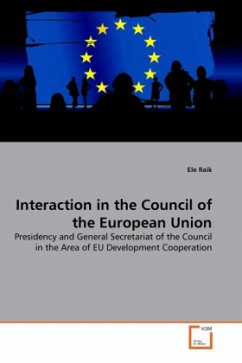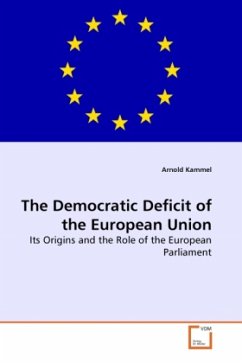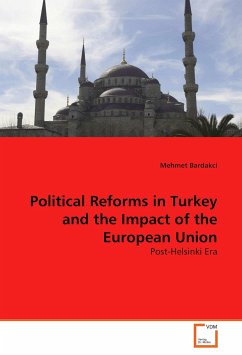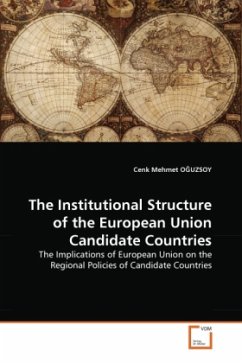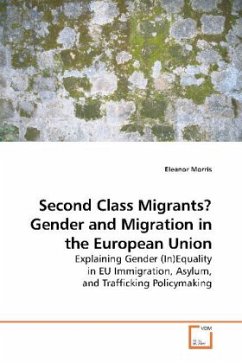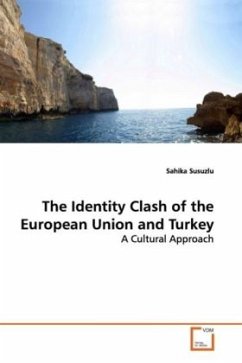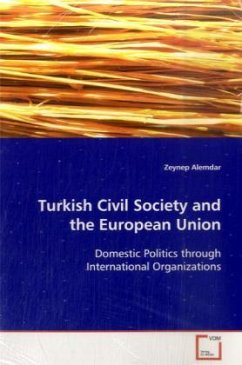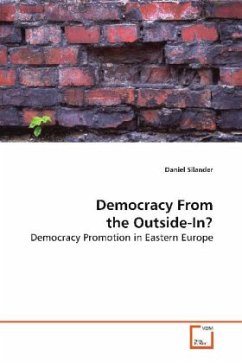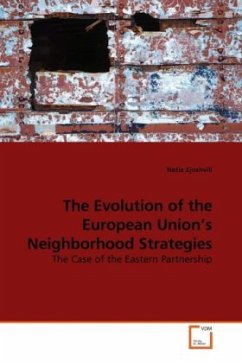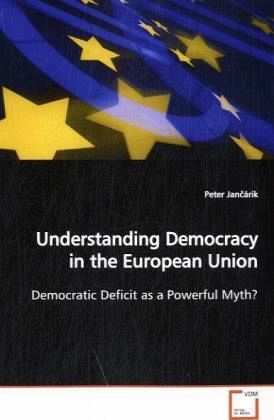
Understanding Democracy in the European Union
Democratic Deficit as a Powerful Myth?
Versandkostenfrei!
Versandfertig in 6-10 Tagen
32,99 €
inkl. MwSt.

PAYBACK Punkte
16 °P sammeln!
During its rather short history, the notion ofdemocratic deficit has become both a buzzword among scholars andpoliticians, and a kind of dirty word in the language of European integration. This book provides a discourse analysis of thiscategory that is often taken for granted or as given, and generallyperceived as an unpleasant characteristic of the European project. Furthermore,the question of the European polity s nature cannot be omitted anddefining what the European Union is stands for another major area ofanalysis. Finally, the traces of European constitutionalism, itsviability or futilit...
During its rather short history, the notion of
democratic deficit has
become both a buzzword among scholars and
politicians, and a kind of
dirty word in the language of European integration.
This book provides a discourse analysis of this
category that is often
taken for granted or as given, and generally
perceived as an unpleasant
characteristic of the European project. Furthermore,
the question of the
European polity s nature cannot be omitted and
defining what the
European Union is stands for another major area of
analysis. Finally,
the traces of European constitutionalism, its
viability or futility, are
examined in the light of these findings. This book
argues that the
democratic deficit in the EU is often over-rated, not
so well established
as a concept, and its importance ranges according to
what the EU is,
and what it can or cannot be.
democratic deficit has
become both a buzzword among scholars and
politicians, and a kind of
dirty word in the language of European integration.
This book provides a discourse analysis of this
category that is often
taken for granted or as given, and generally
perceived as an unpleasant
characteristic of the European project. Furthermore,
the question of the
European polity s nature cannot be omitted and
defining what the
European Union is stands for another major area of
analysis. Finally,
the traces of European constitutionalism, its
viability or futility, are
examined in the light of these findings. This book
argues that the
democratic deficit in the EU is often over-rated, not
so well established
as a concept, and its importance ranges according to
what the EU is,
and what it can or cannot be.



